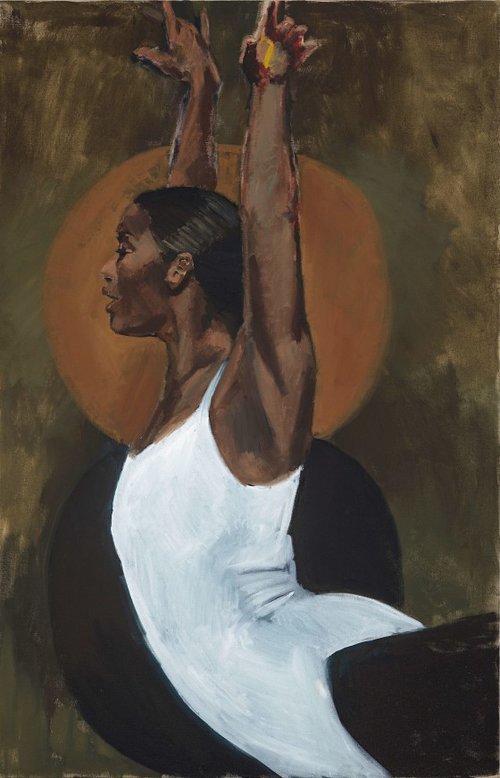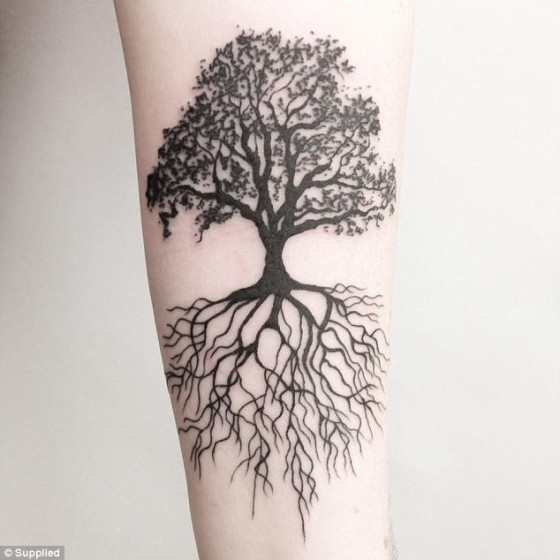My view is that a woman who goes through life without taking any notice of society's perception of her becomes the most feared individual on the planet.
The resurgence of the #metoo campaign still has me all fired up. You have to imagine where you want to go to get there, and oh, the places we can go! I see so many cracks in the fortress of misogyny and want to make those fissures gaping holes--rifts large enough to cause the whole rotten foundation to collapse. In its place, I imagine a gigantic greenhouse emerging. It will overflow with the generative talent and wisdom of multiple generations heretofore silenced. Diminished. Voided.
I have felt emboldened in my work with clients in this historical moment and want to speak directly to those of us assigned "girl" before or at birth, those who have lived as girls or women for any period of time, and those who have a non-conforming gender expression. All of us are subtly and overtly bombarded with the incessant messaging about our less-than value in the world. As a psychotherapist, I have become especially curious about the potential of that moment between when we first feel, sense, or think something and our reaction to that feeling, sensation, or thought. As someone so poignantly wrote, "Between stimulus and response there is a space. In that space is our power to choose our response. In our response lies our growth and our freedom."
What I have learned in my almost 43 years of being read and treated as a "girl" in this society is the lightning-fast speed with which my conditioning sets in to silence, judge, minimize, or otherwise turn away from my immediate experience, especially when it is difficult. Part of this conditioning is more general to be sure--who doesn't have the impulse to balk at pain at least some of the time? But many of us have learned a gendered form of self-rejection that contributes to an active shrinking of the space we take up in the world. This learned self-minimization shows up in the frequent use of speech like "I'm sorry" and "I don't know. " Clear statements morph into self-doubting questions as they leave our lips.

To be sure, learning how to turn toward our internal experience and validate it will not transform all the rotten layers of the patriarchal onion. I am convinced, however, that our external world would shift radically if we refused to negate our internal one. After all, we do not consciously choose our initial thoughts, emotions, and sensations. What we do with these moments is indeed within our wheelhouse. Make no mistake, we are accountable for our responses to our internal workings. Yet when, for example, anger arises, I can allow it to be there and investigate it without taking that anger out on others or myself. The key here is having enough space, within ourselves and the environments in which we live, to adequately explore the anger with curiosity. Otherwise, we never arrive at an understanding of the unmet need driving the anger. As it turns out, anger often emerges when we feel devalued. Meeting this need becomes exponentially more likely when we spend time becoming aware of the devaluation instead of squashing the indicator (anger, in this case) with judgment.
Importantly, if we want to share this acknowledgment of our internal worlds outwardly, we do well to assess our external environments, including the people within them. If we determine that the external sphere cannot hold our experience, we can at least prepare ourselves for the gas lighting. Here I speak of the fragility referenced in so many social justice offerings these days: While fragility. Male fragility. Straight fragility. These are just a few kinds of the limited tolerance for difference and pain that prevent marginalized folks from being seen, heard, and valued in our interactions with dominant cultures and ideologies. The reality is that we cannot make other people be more accepting, open-minded, or justice-oriented. So we do well to become aware of the potential backlash we may face if we choose to allow others into our internal fields. We then can consciously decide if we want to put ourselves out there. Safeguarding our dignity until we encounter a safe-enough audience can serve as a highly effective form of self-care, especially when our resources are depleted.
Hannah Gadsby's Nanette holds many rich lessons on the radical possibilities of self-acknowledgment. She clearly names how diminishing herself serves to caretake the audience members who recoil from the pain she experienced while growing up "a little bit lesbian" and "gender not-normal" in Tasmania. Ultimately, she refuses to continue silencing herself to make others comfortable. As she so eloquently says,
Do you understand what self-deprecation means when it comes from someone who already exists in the margins? It’s not humility. It’s humiliation. I put myself down in order to speak, in order to seek permission to speak, and I simply will not do that anymore.

Gadsby's story matters. It deserves to be heard as it is, without a sugar coating designed for those of us too defended and afraid to hear her truth. What is more, she relinquishes ownership of the abuse inflicted on her by others and the misogynstic air surrounding her. Those are not her burdens to carry. She finally can exhale and return those albatrosses to the individuals, institutions, and cultures that birthed and developed them. Maybe that release will help to catalyze those of us who hold institutional and sociocultural power to be accountable to Gadsby--to support transforming the trauma, oppression, and domination experienced by those at the margins into human flourishing.
Returning to the nuts and bolts of how we acknowledge our internal experience after participating in the depreciation of ourselves for years on end, I turn to a parenting book. As it were, I largely am calling for a form of spiritual reparenting. The authors of No Drama Discipline argue that we need to connect with our children's experience before we redirect their behavior. I am extending that argument to our relationship with ourselves. Before we try to control and manage the rage, despair, or anxiety, can we learn to let those difficult emotions be there? Not do a damn thing except breathe with and notice them? "Hello, overwhelm. You're here again. Okay. I consent."
Importantly, trauma can make our immediate experience too overwhelming to bear without additional internal and external supports in place. So there are times when we need to heed the "No!" we hear when we turn inward and find we are at the edge of our own cliff. Nevertheless, we frequently underestimate our tolerance for difficult internal experiences. We are unaccustomed to letting them have light and air. Thus we need to practice: "You again, sadness. Yes, this too." Once we have allowed an experience to have some space around it, we can engage more actively with it and inquire, "What are you hear to teach me? What do you need or want?"

Some of my most poignant moments as a therapist occurred when a client realized they could offer to themselves the acceptance they sought from someone or something in the external world that, time and again, did not provide it. All at once, they shift from a reed, blown every which way by the shifting winds, to a tree--affected by the weather around it, to be sure, but also containing deep roots to hold it steady as the storm passes. A force to be reckoned with. To again borrow from Gadsby, "There is nothing stronger than a broken woman who has rebuilt herself.”
I say self-acknowledgment is at least worthy of experimentation and look forward to witnessing the findings of your own exploration.
